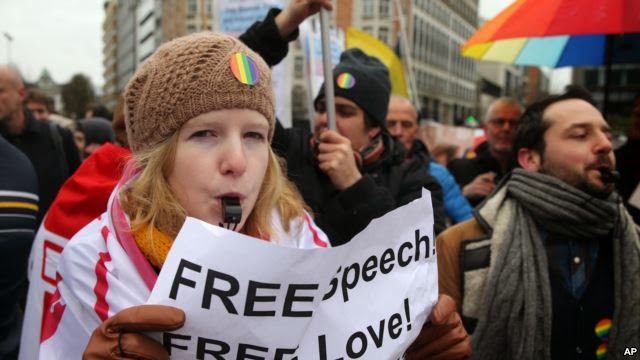Three Facts That Might Control Putin’s Power Grab
As Russian troops tighten their control of the Crimean Peninsula, Russian President Vladimir Putin's diplomatic and military maneuvering face several constraints that might not be obvious to most Americans watching or reading the news. The Obama administration has these limits in mind as it decides how to respond.
1. Russian public opinion. When it comes to protecting ethnic Russians in Crimea, ordinary Russians are ready to endorse almost any measure short of full-scale warfare. Here, post-Soviet Russian chauvinism chases away other considerations, like Russia's standing in the world. Slavic nationalism glues Soviet elites of the older generation to younger Russians who are frustrated with both Putin and the West. Self-determination? Sixty percent of folks in Crimea identify as Russian.
Ukraine-writ-large is different. Russians understand the country's importance to Russia's geopolitical ambitions and fear the consequences of a small but potent anti-Russian right-wing. I'm guessing that a full occupation of Ukraine is much too large for the appetite of the Russian people to stomach. A stalemate, or a process, is much preferable to war, a war that would doubtless exacerbate whatever tensions already exist. In Ukraine, Russian belligerence will alienate the world community much more indelibly, and Russians know that. The Crimea is gettable. Ukraine is not, without significant costs that Russians — who are getting whiffs of what it’s like to exercise global political leadership again (think Iran and Syria) — probably won’t let their technocratic oligarchical political system bear.
2. Putin's own ambitions. Russia is in an expansive mood. In the past year, Putin has brokered a deal to destroy Syria's chemical weapons, trumping and embarrassing the United States. Russian diplomacy helped bring Iran to the negotiating table. The Sochi Olympics, you've got to say, were pretty well run. The West might not like or trust Putin, but he's been an indispensable partner. Truly isolating Russia would shift the global balance of power back towards the United States and Europe. Putin will lose influence in the world. Even China, nominally Russia's cousin in promoting self-determination, does not want the rest of the world to clip its ties with Russia. The opposite might also work against Putin: if China gets stronger as Russia gets weaker, that's not ideal either. China looks out for its own ambitions first. It has little direct interest in antagonizing the West.
3. The Russian military. In Georgia, Russia relied more on trickery than on conventional application of doctrine. It has been ramping up both its showy exercises and its ground strength over the past several years, triggering speculation that its main anticipated challenge was the future conflict over Ukraine. That said, Russia's air force and navy are not particularly well regarded. They would be crushed by NATO forces. The Ukrainians would be defending their home territory, and if command and control hold, they would, you know, actually fight. Russian military planners are constrained by the relative limitations of the army that they have.




Comments